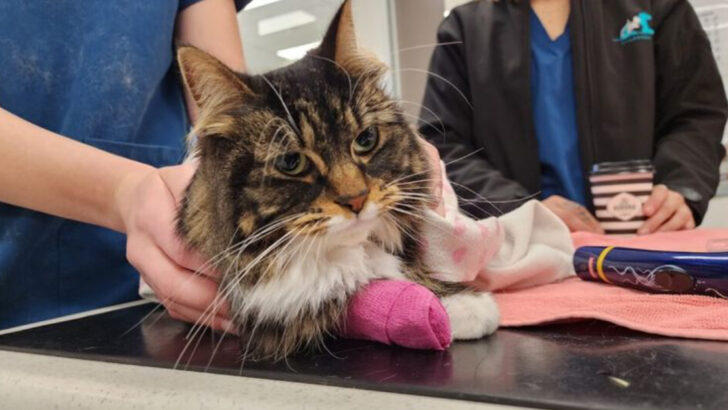Maine Coons may look like royalty, but even these fluffy giants have their weak spots.
Behind the luscious coats and lion-like swagger lies a genetic grab bag of trouble—heart issues, hip problems, and more than a few surprises that can sneak up when you least expect it.
They’re not fragile, but they’re not invincible either.
And when something goes wrong, it often goes really wrong.
That’s why prevention isn’t just helpful—it’s everything.
From food choices to daily habits, small moves can make a huge difference in their nine lives.
So before that majestic tail swishes past your vet bills, let’s talk strategy.
The risks are real.
But so are the solutions.
Hip Dysplasia in Maine Coons
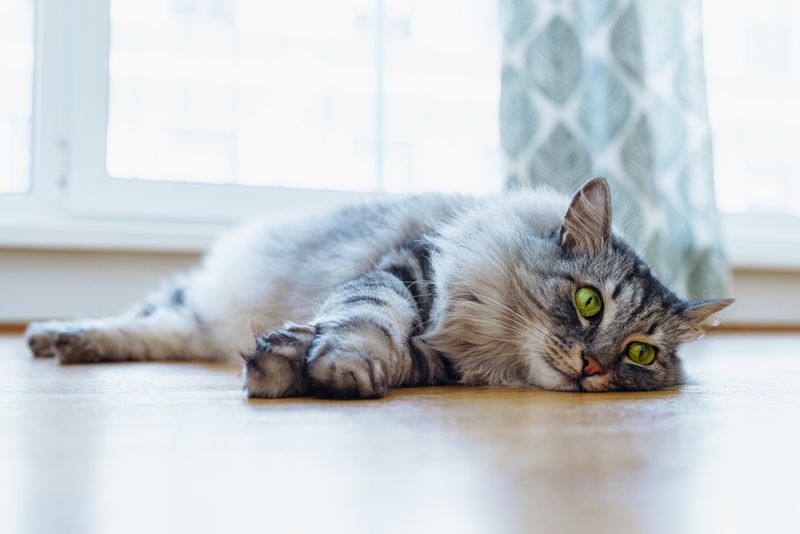
Hip dysplasia is a genetic disorder that affects the hip joint, causing discomfort and lameness. Maine Coons, with their large build, are particularly susceptible to this condition. Many owners notice a decrease in their cat’s activity level and a reluctance to jump or climb. Regular veterinary check-ups and maintaining an appropriate weight can mitigate symptoms. Providing joint supplements and a comfortable sleeping area also helps. It’s crucial to consult a vet if you observe any signs of pain or discomfort. Early intervention can prevent further degeneration and improve your cat’s quality of life.
Hypertrophic Cardiomyopathy in Maine Coons
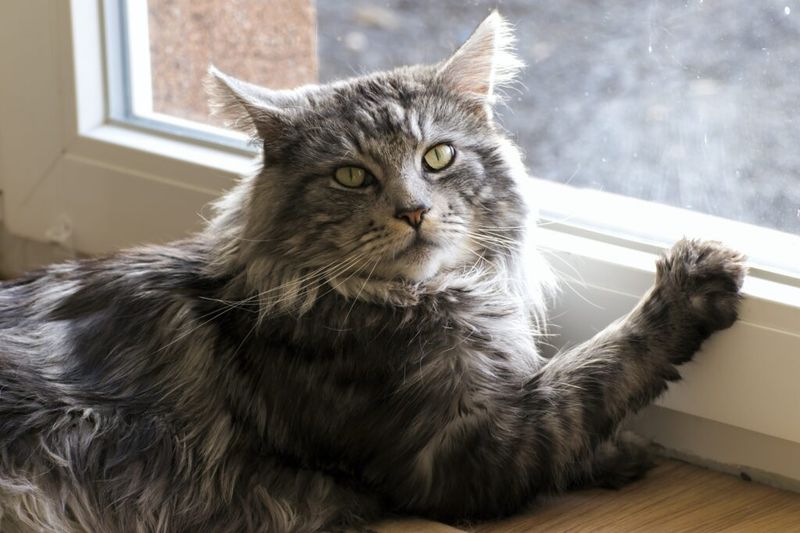
Hypertrophic cardiomyopathy (HCM) is a serious condition that leads to thickening of the heart walls. Maine Coons have a genetic predisposition to this disease. Cats with HCM may exhibit symptoms such as lethargy, rapid breathing, or coughing. Regular heart screenings, especially for breeding cats, can detect this condition early. Managing stress levels and providing a balanced diet are also essential. Genetic testing is available to identify carriers of the gene responsible for HCM. With early diagnosis and proper management, affected cats can lead fulfilling lives despite the condition.
Spinal Muscular Atrophy in Maine Coons
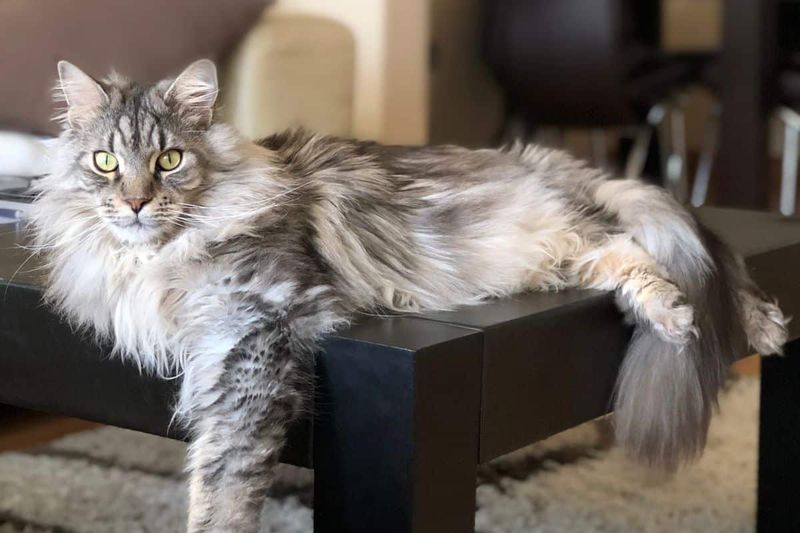
Spinal muscular atrophy (SMA) affects the spinal cord nerves, resulting in muscle wasting and weakness. While SMA doesn’t cause pain, it can limit mobility. Maine Coons may show signs of unsteady gait or difficulty jumping. Providing a safe environment with easy-access areas for rest and play is beneficial. Genetic testing can identify carriers and prevent breeding affected kittens. Regular exercise tailored to the cat’s ability helps maintain muscle tone. With supportive care, cats with SMA can enjoy a good quality of life. Ongoing research continues to explore treatment options for this genetic condition.
Polycystic Kidney Disease in Maine Coons
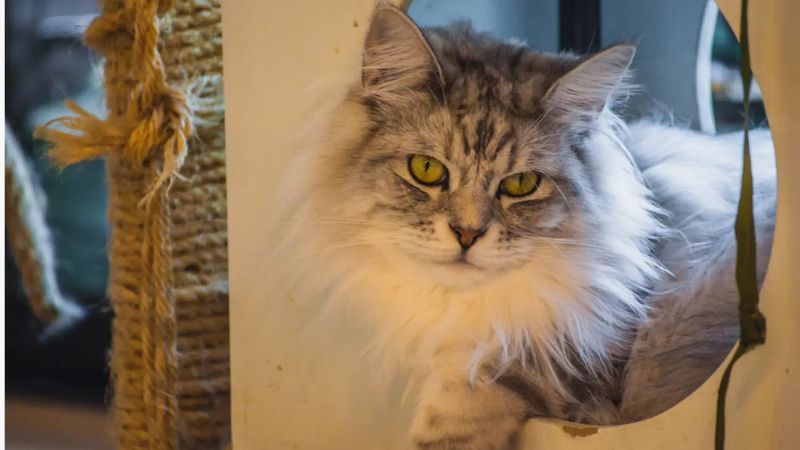
Polycystic kidney disease (PKD) is characterized by the formation of cysts in the kidneys, leading to kidney failure over time. This hereditary disease is less common in Maine Coons but still a concern. Early signs include increased thirst and urination. Regular kidney function tests can catch this disease in its early stages. Providing a diet low in phosphorus and sodium, along with ensuring adequate hydration, supports kidney health. Breeding programs should avoid cats with PKD to prevent spreading the disease. With vigilant care, affected cats can live comfortably for many years.
Obesity in Maine Coons
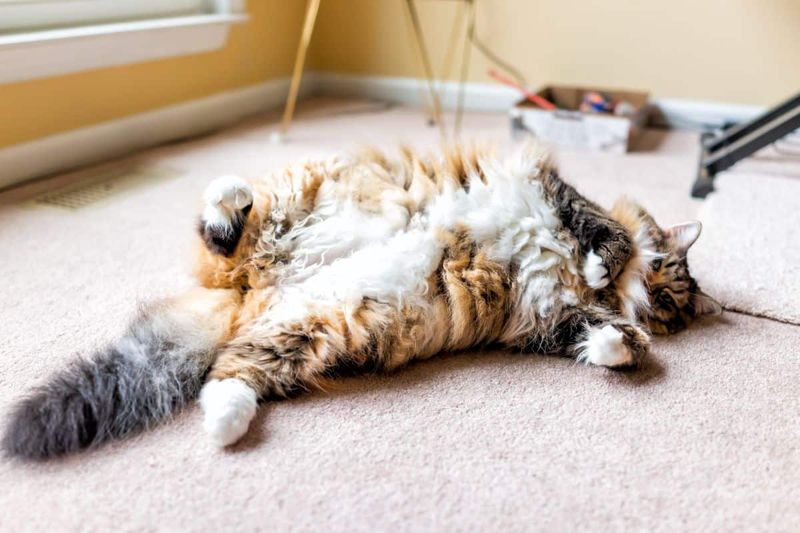
Obesity is a growing concern among Maine Coons due to their love for food and large frame. Excess weight puts strain on their joints and organs, leading to further health complications. Monitoring portion sizes and providing a diet rich in proteins yet low in carbohydrates is crucial. Encouraging physical activity through interactive play sessions and providing climbing structures helps maintain a healthy weight. Regular veterinarian check-ups to monitor weight and health are advisable. With the right balance of diet and exercise, obesity can be effectively managed, ensuring a healthy life for your cat.
Dental Disease in Maine Coons
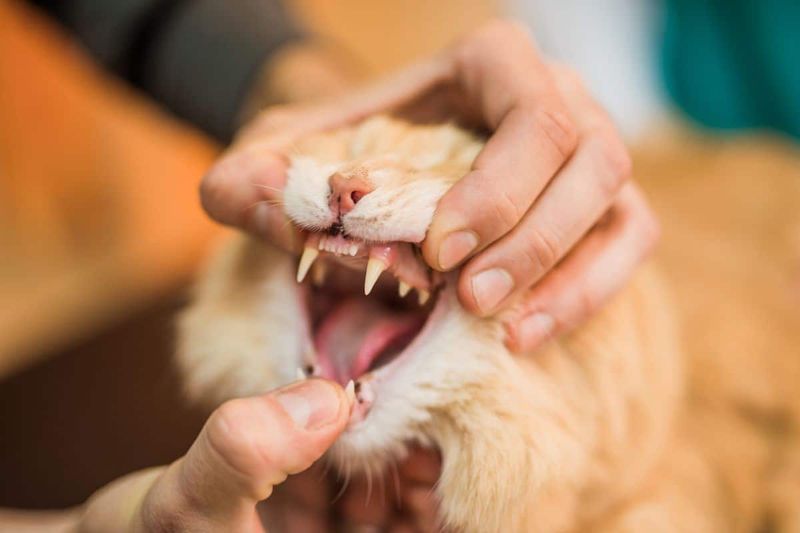
Dental disease is a common issue among Maine Coons, leading to pain and tooth loss if untreated. Symptoms include bad breath, drooling, and difficulty eating. Regular dental check-ups and cleanings are essential. Feeding dental-specific kibble or providing dental chews can reduce tartar build-up. Brushing your cat’s teeth with pet-safe toothpaste also promotes oral health. Catching dental issues early can prevent them from escalating into more serious conditions. A healthy mouth contributes to overall well-being, making it vital to prioritize dental care in your Maine Coon’s routine.
Feline Lower Urinary Tract Disease in Maine Coons
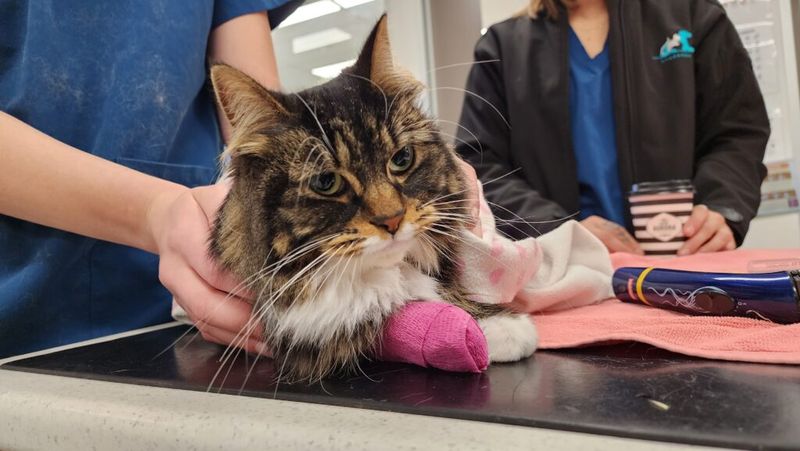
Feline Lower Urinary Tract Disease (FLUTD) encompasses a variety of conditions affecting the bladder and urethra. Maine Coons may experience symptoms such as straining to urinate or blood in the urine. Stress reduction and ensuring adequate water intake are key preventative measures. Feeding a high-quality diet and keeping the litter box clean also play a role in prevention. Immediate veterinary attention is necessary if symptoms arise, as untreated FLUTD can lead to serious health issues. Regular monitoring and proactive care can keep your cat’s urinary system healthy.
Heartworm Disease in Maine Coons
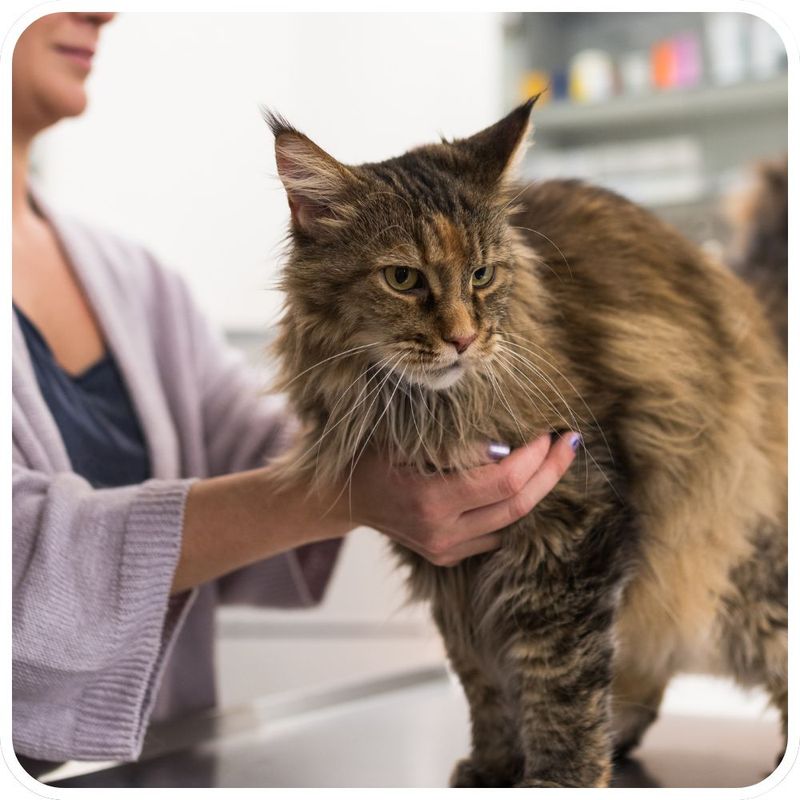
Heartworm disease isn’t just a canine concern. Maine Coons, with their adventurous spirit, are susceptible to this parasitic infection, especially if they spend time outdoors. Heartworms can lead to severe respiratory issues and heart failure if not addressed promptly.
Preventive measures include regular veterinary check-ups and the use of heartworm prevention medications. Keeping your Maine Coon indoors or in a protected outdoor area can significantly reduce the risk.
Did you know? Heartworms are transmitted by mosquitoes, making mosquito control an integral part of prevention. Protect your feline companion with these proactive steps.

